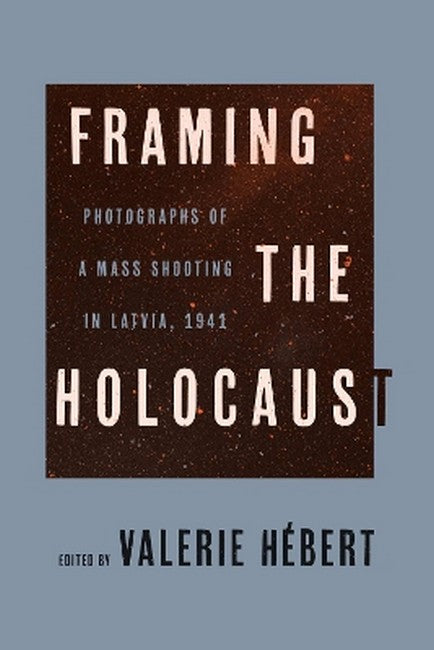Valerie HEbert, professor of history and interdisciplinary studies at Lakehead University Orillia, is the author of Hitler's Generals on Trial: The Last War Crimes Tribunal at Nuremberg.
Request Academic Copy
Please copy the ISBN for submitting review copy form
Description
List of Illustrations Acknowledgments Foreword by Edward Anders Introduction: Twelve Photographs Valerie HEbert Not to Tiptoe Away in the Face of Suffering: Why We Look at Holocaust Photographs Valerie HEbert Investigating Both Sides of the Camera on the Beach at Skede Daniel Newman Reading against the Gaze: Perpetrator Motives and Subject Responses in Photographs of a Mass Shooting Tanja Kinzel Ordinary Acts, Extraordinary Crimes: Photographic Practice and Atrocity Daniel Hoffman Describing Atrocity: Soviet Words on German Perpetrator Images Marilyn Campeau A Day at the Beach: The Skede Massacre and Littoral Photography Daniel H. Magilow Representations of Female Bodies in Holocaust Photographs Dorota Glowacka A Pedagogy of Witnessing: Reading and Interpreting the Skede Photographs in the Classroom Hilary Earl Contributors Index
"Demonstrates that historical research into photography could benefit tremendously from collaboration with film and cultural studies. An analysis of the assumptions that guided these photographers exposes the intended effect of the images."-H-Soz-Kult "Offers a holistic consideration of the chilling images."-The Times of Israel "An original and highly valuable contribution to the debate about how to work with the photographic evidence of the Holocaust, and by extension, the broader visual representation of genocide, trauma, and crimes against humanity."-Paul Lowe, coauthor of Understanding Photojournalism "An excellent and necessary collection on a timely subject. Framing the Holocaust, as the title suggests, addresses both the act of photographing atrocity and the interpretive and explanatory work vital to viewing and understanding such images. Well written, clearly argued, and engaged with current research, the essays form a rich assemblage of insights that unfold in a logical progression while avoiding simplistic and one-dimensional judgments."-Kobi Kabalek, author of Rescue and Remembrance: Imagining the German Collective after Nazism

